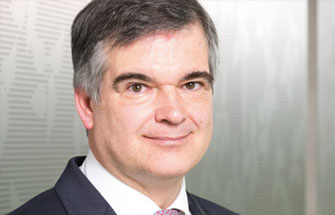On 23 July, Mr Michel HUNAULT, Director of the Service d'Information et de Contrôle sur les Circuits Financiers (SICCFIN), and Mr Claude MARX, Director General of the Commission de Surveillance du Secteur Financier (CSSF), ratified a cooperation agreement in order to strengthen the effectiveness of the fight against money laundering and terrorist financing. We interviewed Mr Claude MARX.
What is the interest of this cooperation agreement?
I see a lot of interest in working together. Our financial centres are very similar and our two countries are very open to the international scene. We also have a reputation to defend and in the current context accidents are not forgiven. Smaller countries are more exposed than larger ones to media pressure but also to international public expectations. We must be beyond reproach.
The legislative arsenal we have today must be applied everywhere, and rigorously. In Luxembourg we have had a zero tolerance policy for a number of years now. There is no excuse for not applying rules that have existed for everyone for thirty years. And we must understand that everything that comes afterwards, the fifth directive, the sixth directive which will have to be ratified soon, are points of detail to adjust situations in new contexts, such as the existence of virtual currencies. But the basic rules are the same. I therefore think that it will be very interesting to exchange views together on practical cases, on common problems of non-application of the rules in a given context. We will be able to analyse concrete cases, such as those of banking institutions of Luxembourg origin established in Monaco. The signing of this contract is very important precisely for these exchanges.
When we talk about the new challenges of supervision, we think of the monitoring of crypto-currencies, the blockchain and exchange platforms...
Cryptocurrencies add to what we already have to monitor. We have taken a first step by requiring all players active in cryptocurrencies to register with a supervisory commission so that we have an overview of their activities, even if they are not strictly speaking regulated. Cryptocurrency/fiat currency exchange platforms, for example, have to register with us so that we can monitor them.
Moreover, everything has to be built today in terms of the use of technology to fight against money laundering...
Yes, indeed. We have recently set up a centralised register of bank accounts within the CSSF, which is both operator and user. It is an essential element in the fight against money laundering, which allows us, if we query it, to know immediately who is the beneficiary, the proxy, the holder of an account, wherever he is. And if necessary, we can do what is necessary. Organised crime often has more financial resources than the supervisory authorities, but if we use technology wisely, we can deal with this mass of suspicious financial flows.
How have the taxpayers reacted to the establishment of a central data file?
It is a paradigm shift, a revolution. All banking relationships centralised with an authority that can search for holders, agents, economic beneficiaries, etc. ... The banks had to accept this because it is the law. And then we had to prepare technically: this database has a predetermined format so that we can consolidate everything and it is updated daily. It was a real technical challenge because the different banking institutions have different IT systems, and we only had six months to build this register. Today, the system is up and running. Checking that the database files are accurate and up-to-date is now part of our ongoing prudential supervision. It is an essential mechanism in the fight against money laundering.
Is it possible to eradicate dirty money?
It can only be done if we work together, and I am a great believer in exchanging case studies. There is no alternative to eradicating the scourge of money laundering.
Moreover, when a country is attacked in a fair or unfair way or both, it is only possible to respond by proving that one is active on the ground in the fight against money laundering. In this case, you can make it known, communicate and defend yourself. If you are not a clean financial centre, you are indefensible. If you have an effective and efficient system, the opposite is true.
Is regulation an asset for attractiveness?
No serious player will set up in Luxembourg or Monaco if the market is not controlled. This was confirmed in the context of Brexit. A certain number of British and international financial institutions have been looking for new locations in the European Union of 27. And it was clear that they were not looking for the place with the lightest controls...






